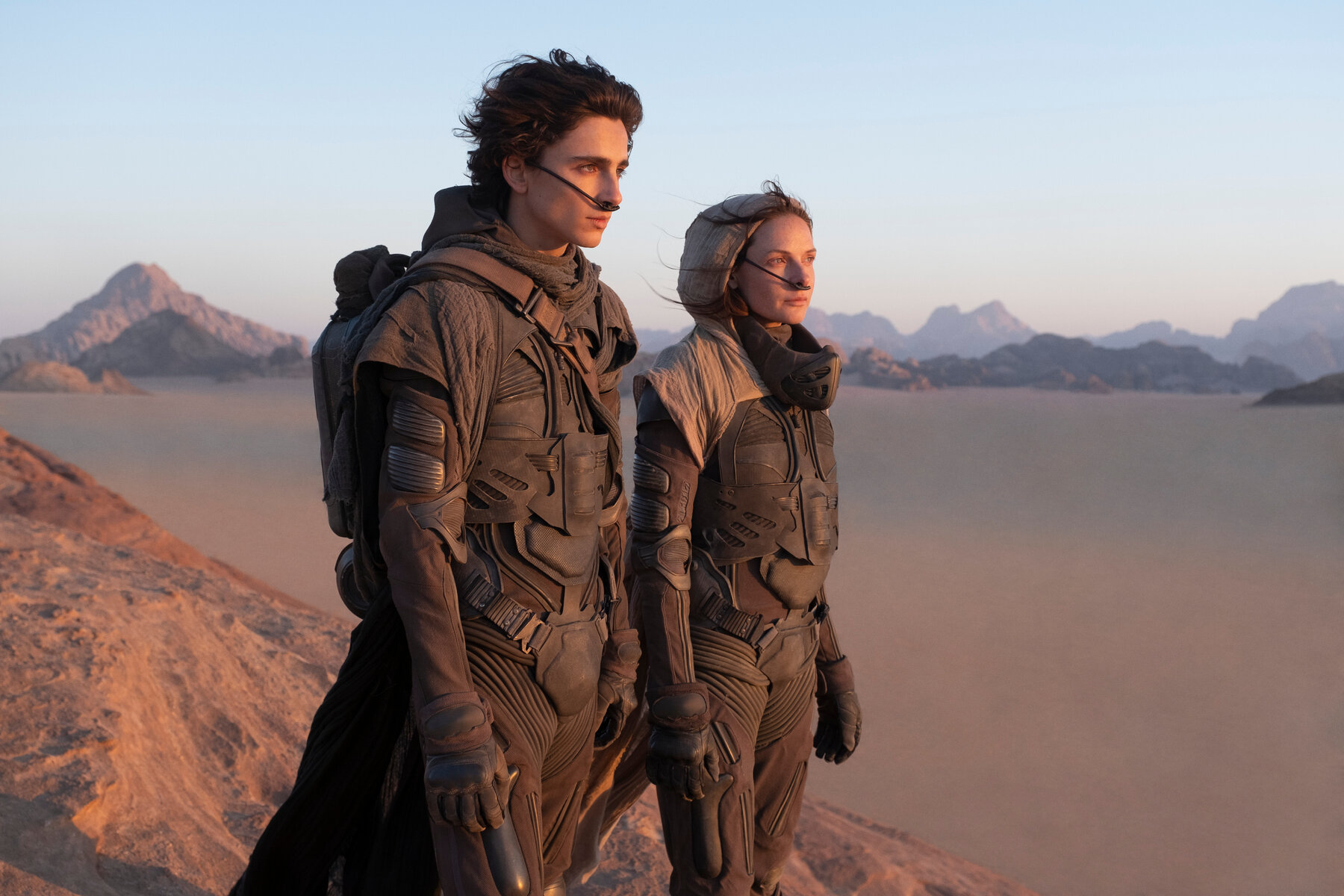How does the film stack-up to the novel?
“Dune” by Frank Herbert is the most beloved and engaging work of sci-fi literature. The vast, evolving story of war, power and corruption is difficult to adapt to screen and is without a doubt the spiciest book and film I’ve covered to date (as in psychedelic spice).
The book
“There should be a science of discontent. People need hard times and oppression to develop psychic muscles.” Written in 1965, the novel covers the rise to power of Paul Atreides following the loss of his father’s empire by the schemes of fiendish and genius Baron Harkonen.
Left with only his mother, Paul traverses the desert planet Arrakis, the source of the spice “Millange” which is the universe’s druglike currency. He encounters massive destructive sandworms and the Fremen, a throng of warriors who embrace Paul as their long-awaited messiah. Despite taking place on a desert planet devoid of water, the story is far less cut and dry than I made it sound.
The plot is describable but at the cost of its excellent presentation. To better describe the spice, Millage, I will turn to the definition by Paul upon being exposed and elevated by it. “A poison, so subtle…so irreversible. It won’t… kill you unless you stop taking it. We can’t leave Arrakis…we take Arrakis with us,” representing darkness and mystery in this saga disguised as a novel. Chances are you’ve noticed this novel’s influence in other formats.
George Lucas took heavy inspiration from this book (desert planets, rebels battling evil empire) and a referential line in “A New Hope” (Luke: “My father didn’t fight in the wars, he was a navigator on a spice freighter.”), and the implementation of religious and spiritual themes.
“Dune” is everything you can get in a novel and more. It is vast and difficult to express, but endlessly intriguing. The driving action as well as the expository revelations are within the characters’ internalizations and brilliant dialogue.
“Dune” is a story written in prose with a deep, methodical exploration of an empire’s fall and a leader’s rise, culminating in the inevitable corruption of a radical following.
Review: 4.5/5
The film
Directed by Denis Villeneuve and starring Timothee Chalamet, Oscar Isaac, Zendaya and featuring Charlotte Rampling who was once attached to play Paul’s mother in the infamous 1970‘s aborted Alejandro Jodorowski’s “Dune” but left in disgust over a scripted mass defecation scene of 2,000 extras (I’m not lying), this film covers the first half of the book. I would say this makes my job half the work, but this is ‘Dune’ we’re talking about.
“Dune” is a spectacle in every sense of the word. The production design is beautiful. The casting fits the actors’ strengths and does not detract from the story (except for when Jason Momoa inexplicably shaved his beard halfway through. I almost didn’t recognize him). The direction is solid, and the musical score is tremendous, definitely Hans Zimmer’s best work in years.
This is a work driven by filmmakers who love Frank Herbert’s novel. Therein lies its strength and weakness. Its strength is that it captures the worldbuilding and atmosphere brilliantly. Its weakness is that it does not fully stand alone as a film.
The film’s pacing is a slow, slow burn which ends quite abruptly; I asked at the end “That’s it?” Imagine “Batman Begins” ending at the 30-minute mark after Bruce blew up the League of Shadows’ lair and returned with Alfred to Gotham. But even that example has a more satisfying rising action, climax and resolution than this film.
This film is the first part of a planned franchise, which is a commendable risk on the filmmakers’ part since the box office determines a second, finishing part. This adaption is what happens when the filmmakers are themselves fans of the source material, and I’m sorry to say that is a rare occurrence.
In being so much an homage to the book, it sacrifices standing out as its own film. I left the theater not disappointed, just expecting more. Frank Herbert’s “Dune” is what I consider an unadaptable book, but this film succeeded in being the best possible adaption we’ll have.
Review: 3.5/5
My favorite line in the film was from Rampling’s character, the Bene Gesserit witch regarding her assessment of Paul: “So much potential wasted in a male.” I can’t be the only one who laughed out loud at this.
